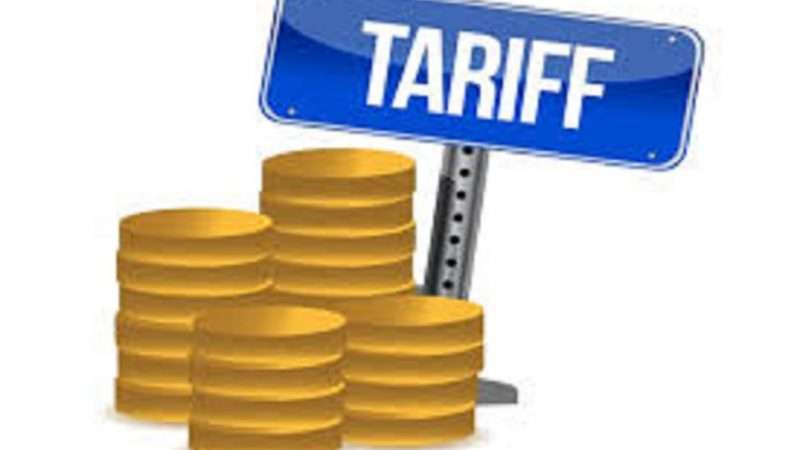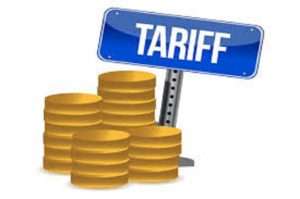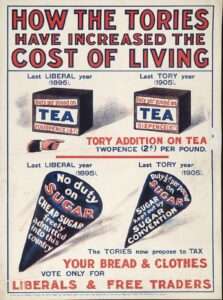

A new Cato Institute/YouGov survey sheds some interesting light on public attitudes towards international trade. It finds that most Americans seem to like international trade, but also that there are significant internal contradictions in their views, and that those views are often influenced by ignorance. Such results should not be surprising, given widespread public ignorance about a variety of other public policy issues. But they are nonetheless notable.
In some respects, the Cato surveys that the public is very supportive of free trade, despite recent trends towards protectionism in both major political parties. Some 53% have a favorable view of "free trade," compared to only 11% that have an unfavorable view. An impressive 63% say they favor "the United States increasing trade with other nations," while only 10% are opposed.
On the other hand, 62% favor "adding a tariff to blue jeans sold in the US that are manufactured in other countries to boost production and jobs in the American blue jean industry." Similarly, 62% favor reducing US tariffs "only if… other countries lower their trade restrictions on U.S. products because otherwise they will harm American businesses and jobs," and 15% oppose tariff reductions under all circumstances. Only 23% favor unilateral tariff reduction (the position held by most economists).
It looks as if large majorities favor "free trade" in principle, but shift positions when jobs are mentioned. But that latter view in turn dissipates once respondents learn that tariffs increase prices. Thus, the survey finds that 66% oppose imposing a tariff on blue jeans if it makes a pair of blue jeans $10 more expensive than it would be otherwise (58% would accept a more modest $5 increase in prices).
Given that almost all effective tariffs are likely to lead to significant price increases (otherwise, there would be no point in imposing them, since this is the only way they could meaningfully help domestic producers by diminishing purchases of foreign products), one would think this price-sensitivity would lead most people to oppose tariffs and support unilateral free trade. Tellingly, however, another question on the survey finds that only 38% know that free trade agreements reduce "the price of products Americans purchase at the store"; 39% believe (wrongly!) that trade agreements actually increase prices. A plurality also believe that trade agreements destroy more US jobs than they create. In reality, the opposite is true, and tariffs often destroy jobs by making production in the US more expensive. For example, Donald Trump's steel tariffs predictably led to job losses in industries that use steel as a production input.
The survey also finds that most Americans believe the trade deficit is harmful (a view overwhelmingly rejected by economists), and greatly overestimate the percentage of US imports that come from China (a view that sours opinions on trade generally, because most Americans view China with great suspicion). Interestingly, opinion about the trade deficit shifts when respondents learn the money paid for foreign goods is reinvested in the United States (as is overwhelmingly true, because Americans pay for the goods in dollars; thus, a trade deficit leads to a current-account surplus).
In sum, opinion on trade policy varies a lot depending on how questions are framed (depending on whether jobs or prices are mentioned). This is similar to public opinion on many other issues that most Americans don't know much about and don't necessarily have strong opinions on. The are similar contradictions and question-wording effects in public opinion on zoning and restrictions on housing construction.
Interestingly, the survey finds that only 1% of Americans consider trade to be one of the three most important policy issues for them (though for some, trade might be part of the broader issues of "jobs and the economy" and "inflation/prices," both of which rate among the most highly-rated issues in the survey). This low prioritization makes it even more likely that voters pay little attention to trade policy, and know little about it.
For free trade advocates, there is a major tactical takeaway: voters hate price increases, and will oppose tariffs if they think they cause such increases. The blue jean question is particularly telling—showing that most people won't tolerate modest price increases even if told doing so will increase jobs. The idea that tariffs increase prices is at least somewhat intuitive, and it may be possible to get it across even to relatively ignorant voters.
The idea of emphasizing the price-decreasing effects of free trade is far from a new one. It's how Richard Cobden, John Bright, and the British Anti-Corn Law League forged perhaps the most successful free trade movement in history, in nineteenth century Britain. After the repeal of the Corn Laws, the pro-free trade British Liberal Party successfully emphasized the issue of prices for decades to come.

The Cato/YouGov survey suggests modern free-trade advocates would do well to try the same strategy. Maybe we can learn a lesson from Cobden, Bright, and other old-time British Liberals.
Cato public opinion analyst Emily Ekins outlines the significance of some of the survey's other findings here.
NOTE: In addition to my primary position at George Mason University, I am also the Simon Chair in Constitutional Studies at the Cato Institute. However, I had no role in developing this survey.
UPDATE: Cato international trade scholar Scott Lincicome, who helped create the survey offers some insights on the results here.
The post Trade, Public Opinion, and Political Ignorance appeared first on Reason.com.







